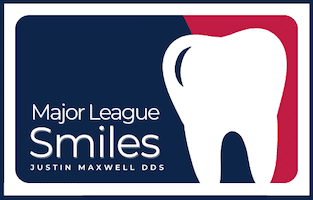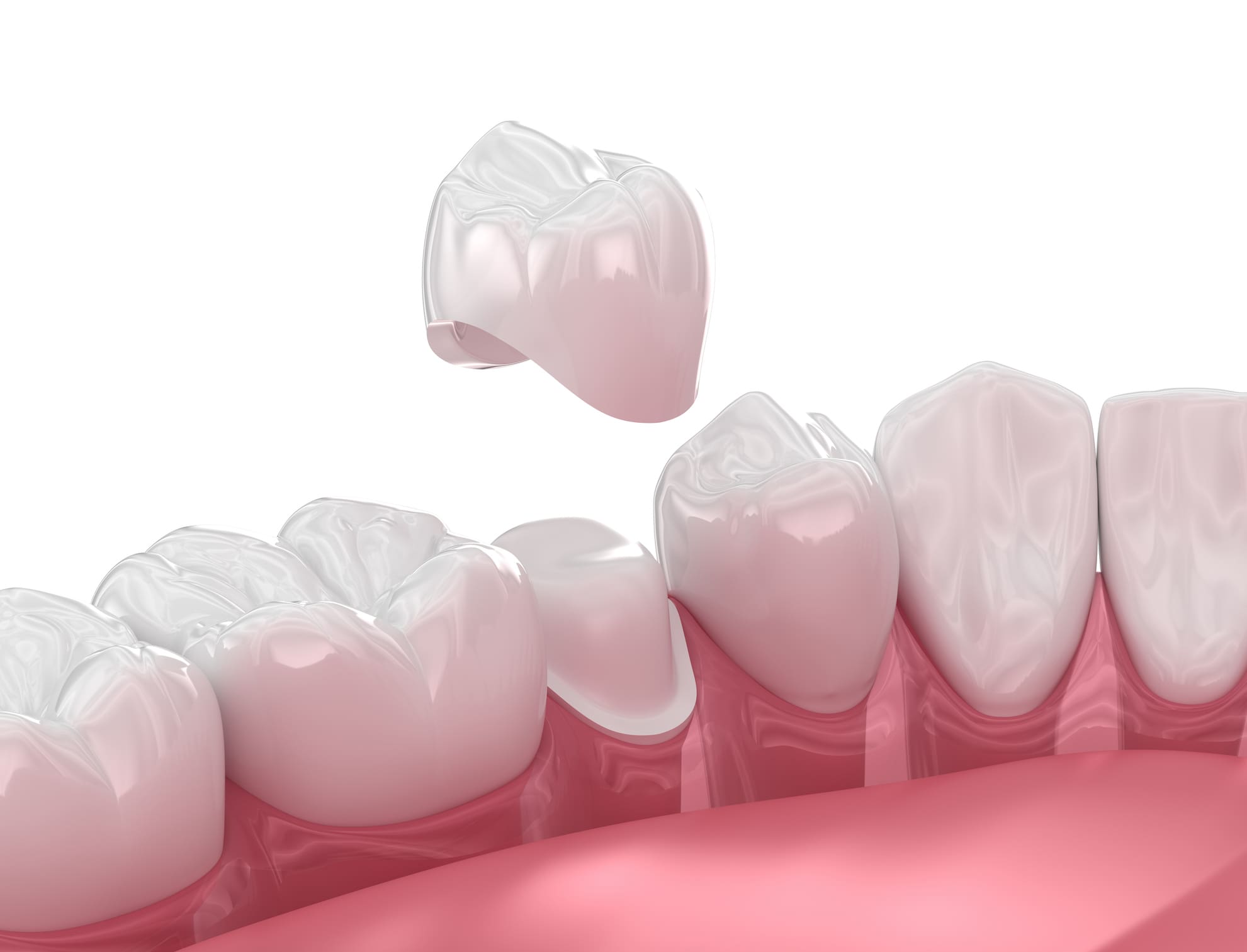Protect & Perfect Your Smile with a Custom Dental Crown
A cracked tooth or a large, failing filling can feel like a major setback. But just like in sports, a great comeback starts with a solid game plan and precision execution.
At Major League Smiles, Dr. Justin Maxwell brings a unique perspective to restorative dentistry. As a former Major League Baseball player who graduated Summa Cum Laude from dental school, he understands what it means to perform under pressure and deliver flawless results. For our patients in Ellicott City and Howard County, that means a dental crown isn’t just a repair. It’s a custom-crafted, long-term solution designed to save your natural tooth, restore your bite, and leave you with a smile that looks effortlessly healthy.
Dental Crowns in Ellicott City, MD
We always choose the most conservative play first. A crown is recommended when a tooth needs a “reinforcement” to stay in the game for the long run. Think of it as a durable, custom-fitted helmet for a tooth that’s taken a hit.
Dr. Maxwell may recommend a crown to:
- Save a Weakened Tooth: from fracturing after a root canal or because of a large, old filling.
- Restore a Cracked or Worn Tooth: by holding it together and preventing further damage.
- Protect a Tooth: that is at high risk for decay or breakage.
- Anchor a Dental Bridge: as a stable, fixed solution for missing teeth.
- Cosmetically Enhance: a discolored or misshapen tooth with a perfectly matched porcelain crown.
- Covering Implants: Implant-supported crowns can replace single missing teeth. A dental implant permanently replaces a lost tooth and doesn’t need special care.
Choosing Your Crown: A Strategy for Strength & Beauty
The material matters, and the choice is strategic. Dr. Maxwell will recommend the best option based on the tooth’s location, function, and your aesthetic goals; just like choosing the right equipment for the position.
- High-Strength Zirconia (Our MVP for Back Teeth): For molars that endure the heavy chewing forces, we often recommend incredibly strong, tooth-colored zirconia. It offers the durability you need with a natural appearance.
- All-Porcelain / Ceramic (The Aesthetic All-Star): For front teeth, where blending seamlessly with your smile is crucial, we use lifelike porcelain or ceramic. It captures the natural translucency of enamel for a truly undetectable restoration.
- Gold Alloys (The Veteran Specialist): While less common today for aesthetic reasons, gold alloys remain one of the most durable and biocompatible materials. We may discuss this option for teeth that are rarely visible.
Each crown is custom-designed and crafted for a perfect fit because in dentistry, as in baseball, precision is everything. Today’s crowns look more natural and last longer than ever before. With proper care, your new crown can protect your tooth for many years while keeping your smile looking great.
Patient Review
Your Two-Visit Game Plan to a Stronger Tooth
We’ve streamlined the process into two predictable visits, with your comfort as our top priority.
Visit 1: Preparation & Precision Imaging
- The Consultation: Dr. Maxwell will examine your tooth, often with digital X-rays, and review your options. He believes in clear communication, so you’ll understand the “why” behind every recommendation.
- Gentle Reshaping: The tooth is gently and precisely reshaped to create space for your new crown. You’ll be completely numb and comfortable.
- Digital Impressions: Using an advanced intraoral scanner, we take a perfect 3D digital model of your tooth. This is sent to our master dental lab. We don’t use messy, uncomfortable putty impressions.
- Your Temporary Crown: You’ll leave with a sturdy temporary crown, so your smile is protected, and you can use your teeth normally.
Visit 2: The Perfect Fit
About two weeks later, your custom crown arrives. We will call you back to our Ellicott City dental office. Dr. Maxwell will check the fit, color, and bite meticulously before permanently bonding it. The result is a tooth that feels and functions like your own, ready to go the distance.
Caring for Your Crown: Preserve Your Investment
A crown is a long-term investment in your oral health. Extend its lifespan with these simple steps:
- Maintain Elite Oral Hygiene: Brush and floss diligently. Pay special attention to the area where the crown meets the gum to prevent decay at the margin.
- Use the Right Equipment: If you grind or clench, a custom night guard is essential to protect your crown and teeth from excessive force.
- Schedule Regular Check-Ups: Your routine cleanings and exams at our dental practice allow us to monitor the health of your crown and the supporting tooth. We’ll make sure everything stays in championship condition.
Frequently Asked Questions
How long does the entire process take?
Typically two visits over about two weeks. The first visit is for preparation and digital scanning (about 60-90 minutes). The second visit, two weeks later, is for the final, permanent placement (about 30-45 minutes).
Will people be able to tell I have a crown?
Our goal is aesthetic invisibility. Dr. Maxwell uses detailed shade matching and works with expert labs to ensure your crown mimics the light-reflecting properties of real teeth. The result should be undetectable!
Is the procedure painful?
You will be completely numbed, so you should feel no pain during the procedure. It’s common to have some mild sensitivity after the anesthesia wears off, which typically fades within a day or two.
How long will my crown last?
With excellent care, modern crowns can last 10 to 15 years, often longer. Their longevity depends on your home care, habits (like avoiding ice chewing), and regular professional maintenance.
Can I get a crown if I have gum disease?
A stable, healthy foundation is non-negotiable. We’ll recommend treatment to get your gums healthy first, ensuring the long-term success of your crown.
What makes your approach different?
It’s the combination of elite-level precision (honed through sports and top-tier academics) and a coach’s commitment to patient education. We ensure you understand your options and are a confident partner in your care.
Ready to Save Your Tooth with Precision Care?
Don’t let a damaged tooth sideline your smile or your comfort. If you’re in the Ellicott City area and have a tooth that’s cracked, heavily filled, or hurting, let’s create a winning game plan.
Schedule a consultation with Dr. Justin Maxwell at Major League Smiles by calling (443) 335-8726 or request an appointment online anytime. Experience care where discipline, artistry, and a commitment to your community come together.

